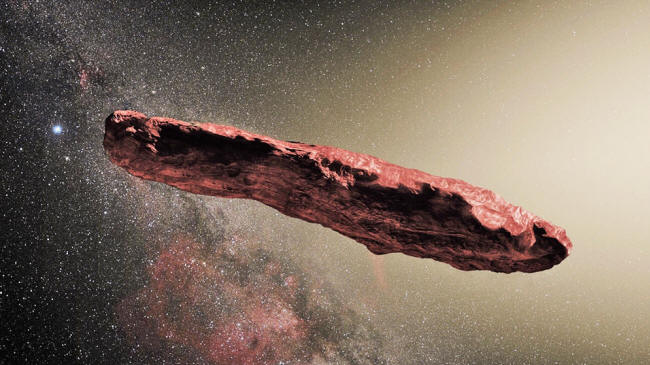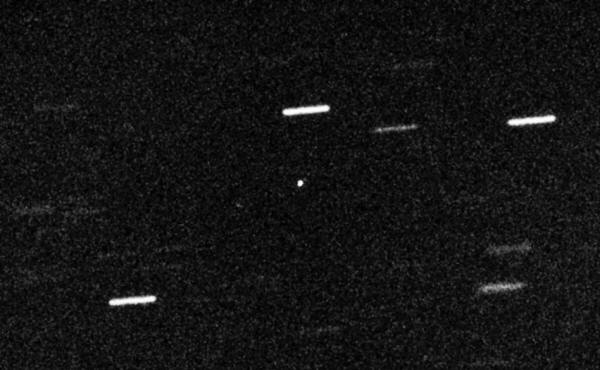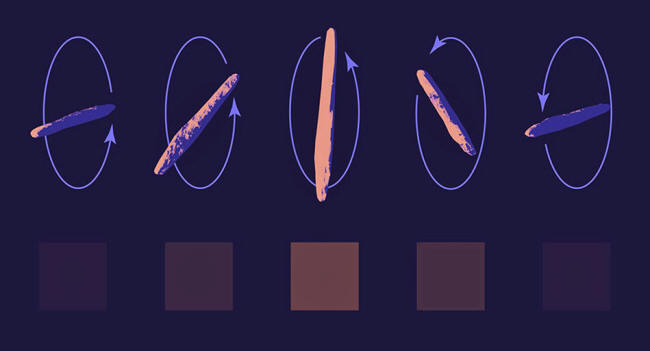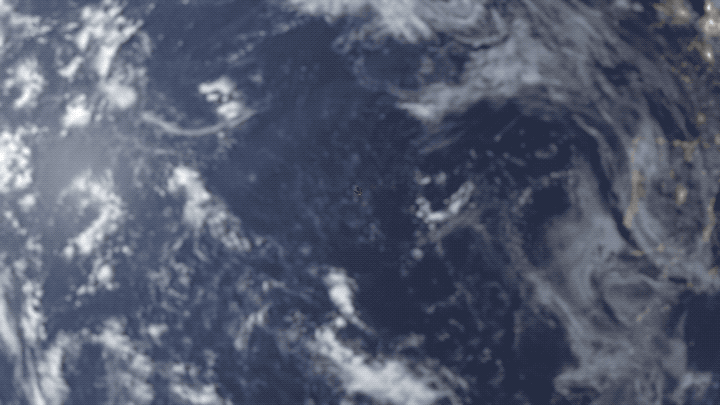|

by Robby Berman
November 06,
2018
from
BigThink Website
Spanish version

It's an
asteroid,
it's a comet,
it's actually a
spacecraft...?
-
'Oumuamua is an oddly shaped, puzzling celestial
object because it doesn't act like anything
naturally occurring.
-
The issue? The unexpected way it accelerated near
the Sun. Is this our first sign of
extraterrestrials?
-
It's pronounced: oh MOO-uh MOO-uh.
That odd-shaped visitor from beyond our solar system, 'Oumuamua
(Hawaiian for "scout"), has been fascinating from the moment it
arrived:
It's a spaceship, it's a rock, it's a comet, it's not a
comet...
But is it a spaceship?
That's where its behavior
has some scientists at Harvard leaning; they suggest it may be a
device of some kind powered by a lightsail, or a piece of one.
What's got experts so puzzled about 'Oumuamua is, as an
about-to-be-published paper (Could
Solar Radiation Pressure explain 'Oumuamua's peculiar Acceleration?)
says:
"'Oumuamua showed
deviations from a Keplerian orbit at a high statistical
significance."
In English:
It sped up as it
approached the Sun. Comets can do this, but 'Oumuamua has been
disqualified as an active comet, as it has no tail.
Shmuel Bialy and
Abraham Loeb, the authors of
the paper, propose that the increase in speed could be due to "solar
radiation pressure."
The bottom line, they
say, is that the discrepancy,
"is readily solved if
'Oumuamua does not follow a random trajectory but is rather a
targeted probe."
The paper discusses the
math involved and finds that its,
"general results
apply to any light probes designed for interstellar travel."
What we saw is
what we get

(NASA/Alan Fitzsimmons)
That dot in the center is an actual image of 'Oumuamua.
'Oumuamua's gone from our view at this point, so any analysis of it
or its movements is limited to the data collected during its period
of observability.
It was first spotted from
the
PAN-STARRS telescope on Maui (hence
its Hawaiian name) on October 19, 2017, and by January 2018 it was
gone. A
ny conclusions we draw
have no way of being tested now.
At the time, 'Oumuamua was scanned for radio waves - a basic means
of communicating which we assume/hope is the universe's lingua
franca - and no radio waves were found, leading observers away from
suspicions that its origin could be an alien civilization.
At first, 'Oumuamua was assumed to be an asteroid, but its subtle
gain in speed as it drew near the Sun suggested a comet, and it
still could be one, though of a kind with which we're unfamiliar.
Comets accelerate near
the Sun because, as NASA
puts it,
"Light and other
radiation from the Sun push on the gas and dust in the coma,
blowing the material away to form a tail that can be millions of
kilometers long."
The problem with 'Oumuamua
is that it had no observable tail. In fact, we couldn't see it that
well at all. As you can see in the photo above.
What did 'Oumuamua really
look like?

(NASA/JPL)
We're all familiar with the shape ascribed to 'Oumuamua, as seen at
the top of this article, but since the images really captured of 'Oumuamua
showed it as a far-away dot, its presumed shape is a mathematically
derived guess based on the way its brightness fluctuated, suggesting
a tumbling, elongated object 10 times as long as it was wide.
(Current calculations put 'Oumuamua at about 800 meters long.)
The rest of its
appearance was likewise deduced by its behavior.
What many take to be its
true appearance is just an artist's conception. So, we're used to
feeling like we know what 'Oumuamua looked like, but we don't really
know.
If you find yourself thinking,
"it sure doesn't look
like an alien device," well, maybe...
Is 'Oumuamua a
light-sail
that remains from a larger craft?

Planetary Society
The paper offers two theories, either of which would explain 'Oumuamua's
odd acceleration.
The first is that,
"'Oumuamua is a
lightsail, floating in interstellar space as a debris from an
advanced technological equipment.
Lightsails with
similar dimensions have been designed and constructed by our own
civilization, including the
IKAROS project and the
Starshot Initiative."
Citizen-funded
Planetary Society plans to launch
one, simulated in the gif above, soon.
A lightsail is a device that uses in-space energy to
propel craft via solar pressure. It
uses the momentum from solar photons striking a large, thin,
reflective sail.
What's so interesting about craft powered by lightsail is that they can pick up the energy they need as they
travel, rather than storing heavy fuel onboard.
Could 'Oumuamua be an actual probe deliberately sent here?

Click image...
(NASA)
"A more exotic
scenario is that 'Oumuamua may be a fully operational probe sent
intentionally to Earth vicinity by an alien civilization,"
suggests the paper.
Apparently, if there were
a lot of naturally occurring objects like 'Oumuamua, we'd be seeing
lots of them. And we're not.
The paper concludes,
"This discrepancy is
readily solved if 'Oumuamua does not follow a random trajectory
but is rather a targeted probe."
Two experts from SETI
weigh in - And disagree
Two scientists from
SETI (Search for Extraterrestrial
Intelligence), SETI director Andrew Siemion and senior
astronomer Seth Shostak, have publicly commented on the
conclusions drawn by Bialy and Loeb.
Siemion termed the paper "intriguing," telling The Globe
that,
"Observational
anomalies like we see with 'Oumuamua, combined with careful
reasoning, is exactly the method through which we make new
discoveries in astrophysics - including, perhaps, truly
incredible ones like
intelligent life beyond the Earth."
However, in an email to
NBC, Shostak
warned,
"one should not
blindly accept this clever hypothesis when there is also a
mundane explanation for 'Oumuamua - namely that it's a comet or
asteroid from afar."
| 





